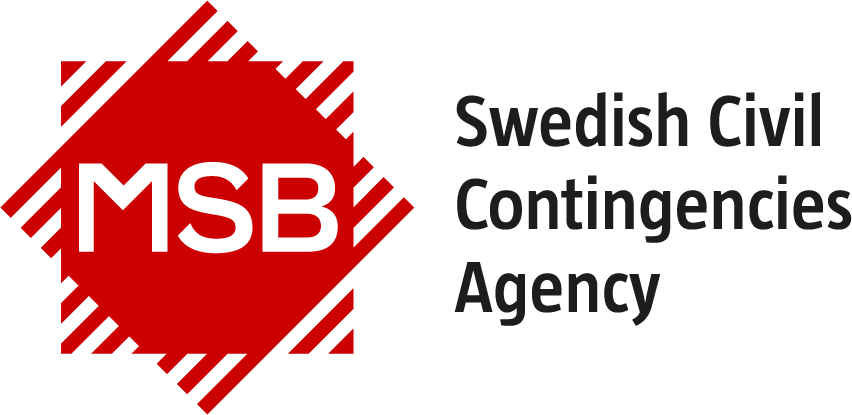EU preparedness for providing emergency shelter to persons affected by disaster or war
Sweden has been awarded several projects by the EU for developing emergency shelter capacity to help persons affected by disaster or war. These missions are part of the EU’s joint preparedness within the framework of rescEU.
Emergency shelter units in response to the war in Ukraine (project 2022–2026)
As a result of the situation in Ukraine, EU identified an acute need to support with emergency shelters. In March 2022, MSB was tasked with developing a temporary emergency shelter capacity to provide immediate help to the victims fleeing the war in Ukraine, for the protection of their life and health. This applies in particular to the most vulnerable, including the elderly, women and children.
The project covers temporary emergency shelters as well as associated equipment such as beds, mattresses, pillows, blankets, sheets, certain lighting equipment, electrical cables, etc. The financing also gave room to purchase 2000 emergency tents. MSB also received additional funding to adapt the capacity for winter use.
The temporary emergency shelter units are available for rapid deployment within the civil protection mechanism during an emergency, when EU member states’ own resources are insufficient. When a member state needs to make use of the EU resources, the responsible authority on national level applies to the EU.
Complementary project to adapt the temporary emergency shelters for winter use
Due to the continuing war in Ukraine, EU decided to fund an additional project in October 2022, which involved adapting the temporary emergency shelters so that they could better withstand a cold climate.
The need for such adaptation became visible after the summer of 2022, when the original temporary emergency shelter capacity had been finalised and was ready to be deployed. MSB received additional funding from the EU to adapt the capacity for winter use, to handle low temperatures in Ukraine and other parts of Europe. This adaptation included insulation material, wooden rules and heating units.
In addition to this, EU requested MSB to establish a reserve bed capacity, as the risk of a sudden escalation of the war in Ukraine requires preparedness for further large numbers of people being forced to flee within Ukraine or to bordering countries. Additional beds will be needed to meet such a surge in refugee numbers.
Facts about the project
- The project is led by MSB, who is responsible for the development and maintenance of the capacity as well as for transporting the material and assembling the temporary emergency shelters on request.
- The project runs from 30 March 2022 until 30 September 2026* (including the complementary project for winter adaptation 7 October 2022 until 30 September 2026).
- The project is funded primarily by the European Commission (DG ECHO), with EUR 40.4 million (EUR 22.6 million plus EUR 17.8 million for winter adaptation). Some of the administrative costs are met by MSB itself.
- The temporary emergency shelters and tents and associated equipment are stored in Vålberg and in Kristinehamn, Sweden.
* The initial agreement period was 6 months. The agreement between MSB and ECHO has been extended.
Development of a long-term emergency shelter capacity: RescEU Shelters SE (project 2023-2026)
In December 2022 MSB was awarded a project by the EU to develop, establish and maintain a long-term emergency shelter capacity within the framework of rescEU. - Unlike the project prompted by the war in Ukraine, RescEU Shelters SE has no defined recipient for the time being – instead it is intended to increase long-term preparedness and capacity at the EU level to rapidly provide protection to populations in countries affected by an emergency.
The capacity MSB is developing will focus on emergency shelter units, including beds, bedsheets, lighting, solar cell charging units for mobile phones etc., as well as sanitation facilities with toilets and showers. There is also the possibility to add components for water purification and laundromats. The capacity will be flexible and adaptable to different environments and climate conditions, and will also be partially adapted to persons with special needs in an emergency.
The EU is funding most of the project, which will continue until September 2026. The capacity is estimated to be fully developed and ready for deployment by the autumn of 2025.
Facts about the project
- The project is led by MSB, who is responsible for the development and maintenance of the capacity as well as for transporting the material and assembling the temporary emergency shelters on request.
- The project runs from 1 January 2023 until 30 September 2026.
- The project is funded primarily by the European Commission (DG ECHO), with EUR 25,2 million. Some of the administrative costs are met by MSB itself.
Collaboration with the EU
With over 30 years’ experience of carrying out international humanitarian missions, MSB is a well-known partner to the UN and the EU. Another of MSB’s comparative advantages is that we has extensive experience of stock-keeping and carrying out rapid operations internationally as well as nationally. More specifically, MSB offers support to the EU’s civilian operations throughout the world and has an ongoing collaboration with the European Commission on strategic stock management, as the EU’s logistics centre for civilian missions is in Kristinehamn. One of the EU’s stockpiles of medical equipment is also warehoused there.
About rescEU
RescEU is a common reserve of capacities at EU level, aiming at boosting the preparedness and response capacity for different types of crises, including forest fires and pandemics. All international operations with the rescEU capacities are decided and activated by the EU.
Sweden also contributes to rescEU with firefighting aircraft and stockpiles of medical equipment.
These projects are funded by the European Union. Views and opinions expressed are however those of the author(s) only and do not necessarily reflect those of the European Union or DG ECHO. Neither the European Union nor the granting authority can be held responsible for them.

